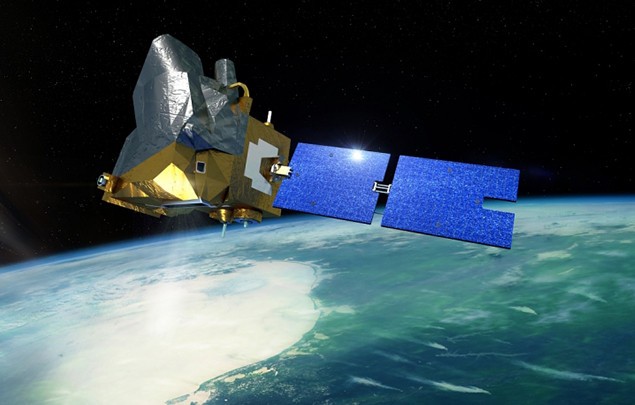MicroCarb, the mission designed to revolutionize the fight against Climate Change
MicroCarb is the first European mission designed to monitor atmospheric carbon dioxide fluxes and contribute to global CO2 emission measurements. The United Kingdom Space Agency (UKSA) and France’s National Centre for Space Studies (CNES) are the two entities leading the MicroCarb mission, and they are coordinating a consortium formed by GMV, the UK’s National Physics Laboratory (NPL), the National Centre for Earth Observation (NCEO), the University of Leicester and University of Edinburgh, Airbus Defence and Space, Thales Alenia Space, and RAL Space.
Carbon dioxide is a compound that is essential for life on Earth. It is part of the biogeochemical cycle that allows for exchanges of chemical compounds between the atmosphere and living beings while maintaining a sustainable balance on the planet. CO2 is a byproduct that is being generated constantly during natural processes, such as respiration, decomposition of organic matter, and fermentation of sugars. However, it is also generated artificially by human activities, and this is where the problem arises. Ever since the Industrial Revolution, a process has been occurring to cause an imbalance in CO2 emission levels, as the result of human activities (such as transportation, energy generation, and industrial operations). Because of this, CO2 gas has now become the main driver of the greenhouse effect.
MicroCarb has developed technology that can be used for high-precision measurement of CO2 emissions derived from natural processes, as well as from human activities. It can also measure the capacity of ecosystems to absorb CO2. MicroCarb can also map the distribution of this gas in cities, to improve our knowledge of the focal points of emissions, which will in turn assist with decision-making.
In the United Kingdom, GMV is responsible for the design, implementation, and quality assurance of the MicroCarb mission’s algorithms and operational processors, and for integrating those processors into the processing infrastructure used by the CNES and the European Organisation for the Exploitation of Meteorological Satellites (EUMETSAT). Once those processors have been integrated, they will translate the data collected by MicroCarb’s scientific instruments into values that can be combined with climate data and used in various types of scientific studies.
The data that the MicroCarb mission will provide is undoubtedly of great value for implementing measures to fight climate change, and it will make a significant contribution to compliance with the 2015 Paris Agreement established at COP21. It will also help achieve the carbon neutrality goals set by the EU for the year 2050 while supporting the various Net Zero campaigns initiated by a wide range of governmental agencies and private organizations.
The satellite is currently in its assembly and integration phase in the United Kingdom, which will be followed by the test phase (more information, here), with launching scheduled for 2024.
More information can be found at this link and the official web project.
